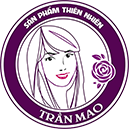English
Trần Mao pollen
Trần Mao pollen
Pollen is synthesized from millions of pollen grains of many flowers, so they have many different colors and sizes.
Pollen has bright color, sweet taste and characteristic odor. Normally the pollen is yellow, but the wild pollen has different colors like red, yellow, brown, white…

Pollen is collected from the flowers by worker bees, they use honey to link the small pollen grains. They leave the pollen in the baskets of the hind legs to bring back the nest. The Beekeepers use a sheet of plastic or aluminum that is drilled the holes, for the worker bees can enter but two pollen grains are pushed back. Pollen has high nutritional value as well as the ability to make medicine. It can be combined with honey as an effective medicine.

Uses:
Pollen supports treatment for people with diseases such as:
– High blood pressure, atherosclerosis
– Diabetes
– Lipid disorders
– Hepatitis, diseases about liver
– Cancer, supportive treatment during chemotherapy
– Gastrointestinal diseases (stomach, intestines …)
– Prostate
– Parkinson ( reduce memory …)
– Erectile dysfunction
– Infertility
– Premenopausal syndrome
– Headache, vestibular disorders
– Retinopathy, vision loss
– The force

How to use:
Chew directly or grind small before using. It can be mixed with soft drinks or milk to enhance its taste.
– It is best to use when hungry, before meals 30 minutes
– Normal dose is 20g / day for adults
– Children under the age of three take 1/3 of the adult dose.
– To be easier, based on 1 teaspoon is 6g dried pollen. 1 the soupspoon is 10g dried pollen.

Note:
- People with a history of pollen allergy should not use pollen.
- Do not use deformed pollen (damp mold, unpleasant odor).
- Pollen has different colors and grain sizes according to the type of flower for the chalk

